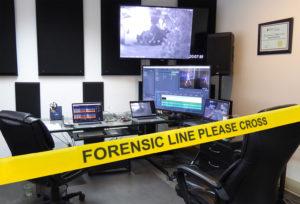I was so frustrated seeing attorneys make the same mistakes that I had to prepare this class.
It got embarrassing. During opening statements, the opposing attorney made a claim about the video evidence that was out of the blue and, although Tony couldn’t put his finger on it, seemed to be misleading.
Tony was unprepared, and the opposing attorney took advantage. He misrepresented video evidence in open court, and Tony didn’t have the tools to object because he didn’t spend the time to understand specifics of his evidence.

Ever had this happen to you?
It is humiliating.
Your client might never realize what just happened, and at first, you might not realize it either, but later, when you go over your notes, preparing for a witness or closing argument, it might dawn on you.
You’ve been rolled.
Right in front of the jury. A boldfaced lie. And because you weren’t prepared, you didn’t object.
Unfortunately, I see it often — so often I had to put together this class.
Important details that affect your case, from the video frame rate to the file metadata to the resolution of your images and video. From understanding how microphone placement might affect the audio recording of a voice to how the camera angle and lens type could mislead a jury in regards to suspect size, actions, and height.
Avoid the #1 mistakes made in court with video, audio, and still image evidence.
Not only avoid humiliation, but force the other side to admit their attempted deception.
How powerful it is when you stand up in court — in front of the jury — and object with, “Your honor, the prosecution has misstated the evidence.”
And then to go back in chambers with the judge while you describe how the opposing attorney is misleading, and for the judge sustain your objection in front of the jury.
Good stuff, yes?
You will hear concrete advice. We’ve saved attorneys from a lot of headaches and humiliation; we could help you too.
Why are you providing this class for free?
Why am I willing to bankroll these classes, spending our time, resources, and energy to teach classes and not charge a penny? Because it allows potential clients to see not only our technical skill set and history of successful cases, but also to see us in action, presenting to a group, just as we do in front of a jury. If you need us to testify as an expert witness, you will know that your expert is confident, knowledgeable, and persuasive on the witness stand.
I’m tired and frustrated with attorneys making mistakes that hurt their clients! Get us involved from the beginning, when you and I have the time to watch, listen, and focus on the evidence.
This class allows potential clients to see our skill with investigating digital evidence and presenting the results.